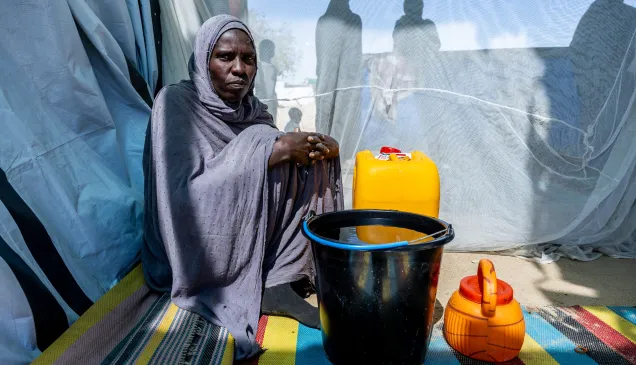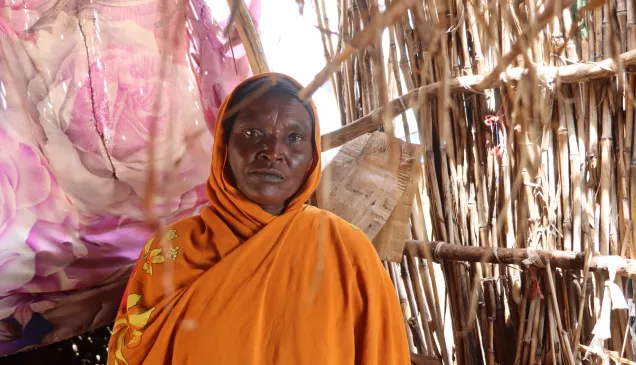Sudan faces worst cholera outbreak in years as war devastates infrastructure
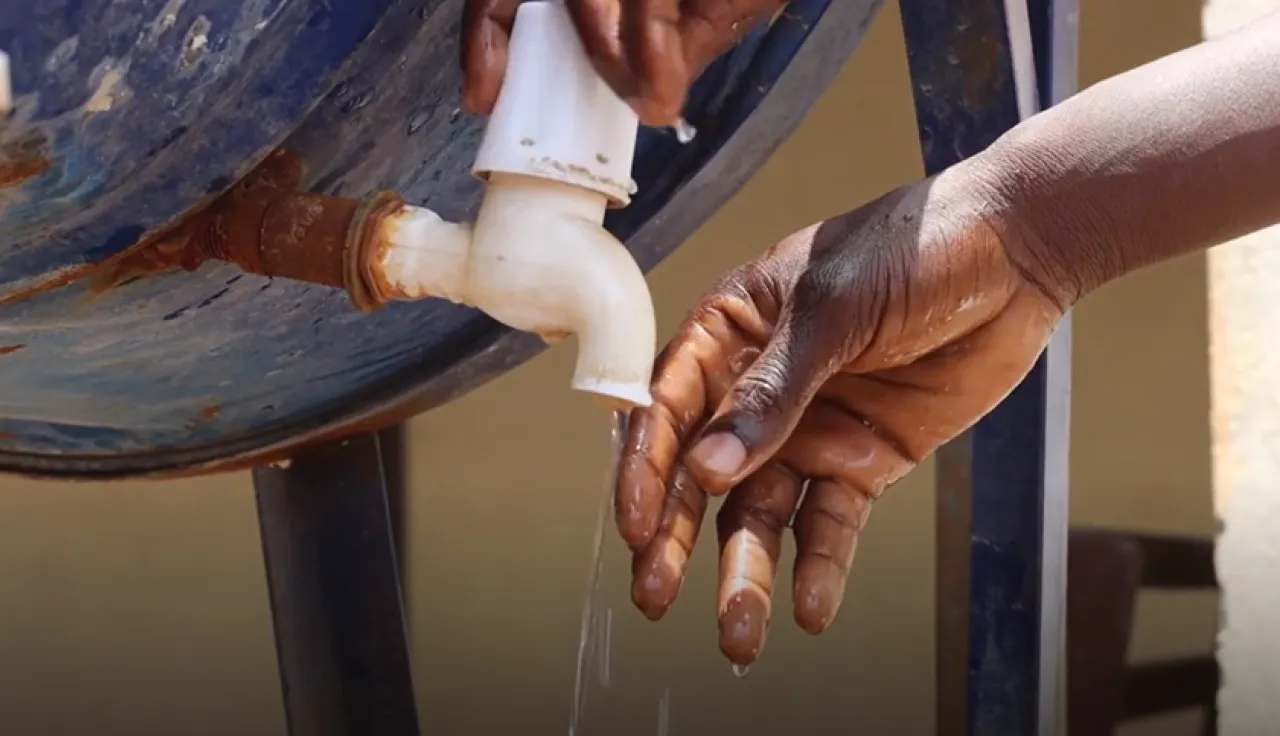
Khartoum/Geneva – Amid Sudan’s devastating conflict, which has already caused tens of thousands of casualties and displaced millions, another crisis is silently unfolding: the country’s worst cholera outbreak in years.
According to Sudan’s Ministry of Health, cholera has already caused more than 2,500 deaths, with over 100,000 suspected cases identified across the country. ICRC teams on the ground warn that the disease is spreading rapidly as more than two years of armed conflict have severely damaged or destroyed essential infrastructure.
“Sudan is facing its worst cholera outbreak in recent years,” said José Luis Pozo, head of operations of the ICRC in Sudan. “This situation is unfolding in the middle of a devastating conflict that has destroyed infrastructure and has left millions of people without access to clean water, healthcare and other essential services.”
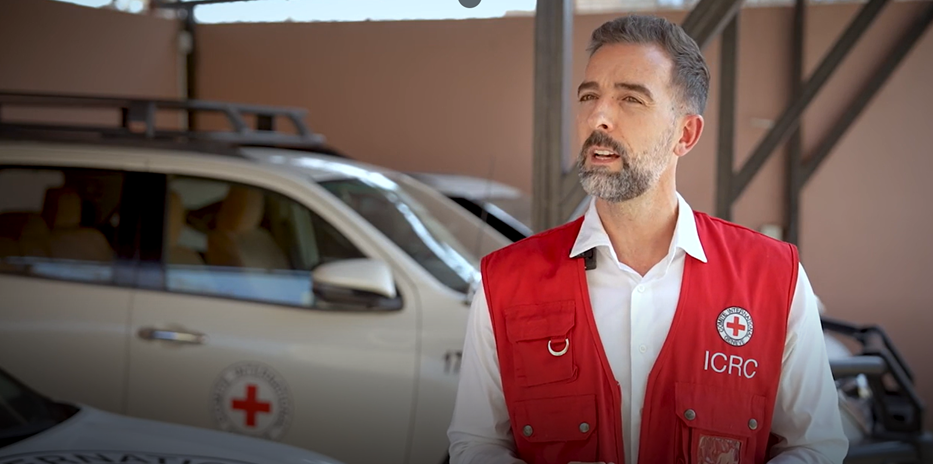
A fragile health system pushed to the brink
An estimated 80% of health facilities in conflict-affected areas are no longer functioning. Doctors and nurses at facilities like Al Jazeera East Hospital in Al Bashraga, Al Jazeera State, are working to treat cholera patients, providing oral rehydration solutions and intravenous fluids to the most severe cases.
For health workers, the outbreak has added yet another burden to an already overwhelmed system. “The number of people with watery diarrhoea definitely has an impact on the centre's staff in terms of pressure, but we are working hard to raise the level of efficiency and increase the centre's capacity to accommodate patients,” said Abbas Mubarak, deputy Director of Health Emergencies and Epidemic Control in Gedaref State.
For patients like Mutasim Azhari, a local resident hospitalized with severe dehydration and stomach pain, the experience has been frightening. “I was admitted with my brother to a cholera treatment centre. They did everything they could to cure me. It was the first time I had contracted cholera. I knew what it was, so I was very afraid,” he said.
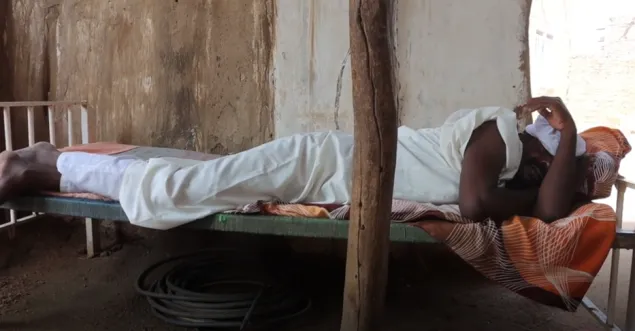
Mutasim Azhari, a resident of Al Bashraga, Al Jazeera State, rests on his bed at home.
ICRC response in the hardest-hit areas
The ICRC is focusing its emergency response on the states of Khartoum, Gedaref, North Darfur, East Darfur and Sennar, where the combination of cholera and malnutrition is most severe. To date, ICRC support to health centres and rapid response teams has enabled the treatment of almost 18,000 patients and strengthened early detection of new cases.
In North Darfur, for example, the ICRC has provided critical assistance to around 82,000 displaced people in Tawila, in collaboration with the Sudanese Red Crescent and local health authorities. This support includes distributing hygiene kits, improving access to safe drinking water, running awareness campaigns, and conducting fumigation activities to prevent the spread of disease.
“The situation remains urgent. The rainy season is under way and the risk of new cases is high. So quick action and coordination are essential,” Pozo added.
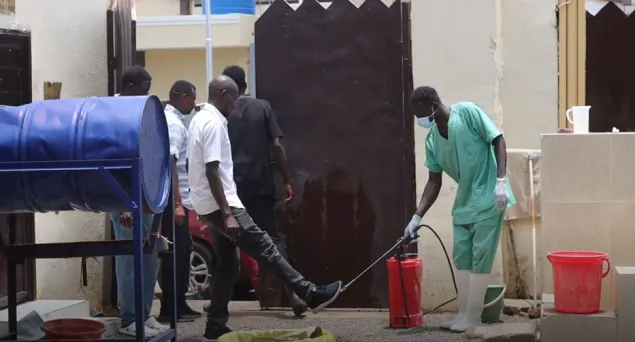
People disinfecting their hands and feet at the cholera treatment centre in Gedaref State.
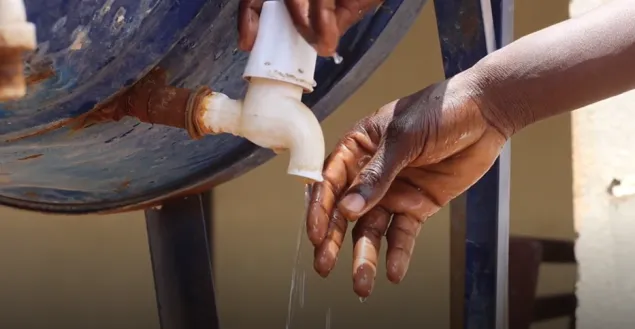
Protecting civilians and essential infrastructure
The ICRC reminds all parties to the conflict of their obligation under international humanitarian law to protect civilians and essential infrastructure. Clean water, healthcare facilities and electricity systems are vital for the survival and well-being of the civilian population.
Read more about our work in Sudan
- Frequently asked questions: Our work in Sudan
- Two years of devastation in Sudan: A civilian toll that cannot be ignored
- Sudan: January to June 2025 Facts & Figures
- International Day of the Disappeared: Conflict in Sudan drives missing persons cases in Africa
- Sudan: Delivering life-saving care to support a health system in crisis

